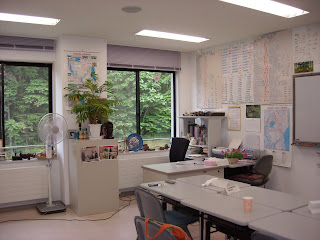Hamjambo!
Here in Tanzania, I have often hear Christmas songs these days. In a supermarket well air-conditioned, Christmas trees were sold. Local tailors made cushion cover with Father Christmas and are selling them. I am not accustomed to Christmas in summer, but little by little, Christmas items remind me that now is the end of the year.
Here in Tanzania, I have often hear Christmas songs these days. In a supermarket well air-conditioned, Christmas trees were sold. Local tailors made cushion cover with Father Christmas and are selling them. I am not accustomed to Christmas in summer, but little by little, Christmas items remind me that now is the end of the year.

December 1st was the World AIDS Day, and here in Tanzania events were held in many places. In Temeke Municipality, Dar es Salaam, where I am now, the event was held by the sponsorship of the Temeke Municipal Council.

(The children whom I teach at schoo)
Many Community Based Organizations (CBO) formed by women, People Living With HIV AIDS, youth and so on gathered in a ground near the VCT centre. Pupils from the primary school where I regularly visit also came there. They danced and sang a song.Several people showed dance, drama, song and so on. The place of VCT centre was introduced.
Within the Temeke Municipal Council, the special committee is formed. My colleague is one of the members, who actually took me to the event on the day. Other members are from other department in the Council, People Living With HIV/AIDS(PLWHA) and so on. A woman who is a member of the committee infected with HIV virus, but she has not become AIDS for quite a long time. She had her photo taken and made posters for public. She told me that she talk in the radio program to eliminate discrimination against PLWHA and AIDS patients. I was impressed that she is very brave.
It is repeatedly said that the issue of HIV/AIDS is the issue of we ourselves and anyone can have HIV virus. However, to be honest, it seemed to me that the issue of HIV/AIDS was something far from me, but here the issue is something we cannot ignore nor avoid.
Tutaonana




 (The booklet explaining the national policy to prevent HIV/AIDS for young people.)
(The booklet explaining the national policy to prevent HIV/AIDS for young people.)




 The banana we cooked was very hard, and we had to peel their skin by knife. The taste and texture of the cooked banana was like potate. In Japan, we think banana is just a fruit and never cook them, so it was interesting for us to taste cooked banana.
The banana we cooked was very hard, and we had to peel their skin by knife. The taste and texture of the cooked banana was like potate. In Japan, we think banana is just a fruit and never cook them, so it was interesting for us to taste cooked banana. 


